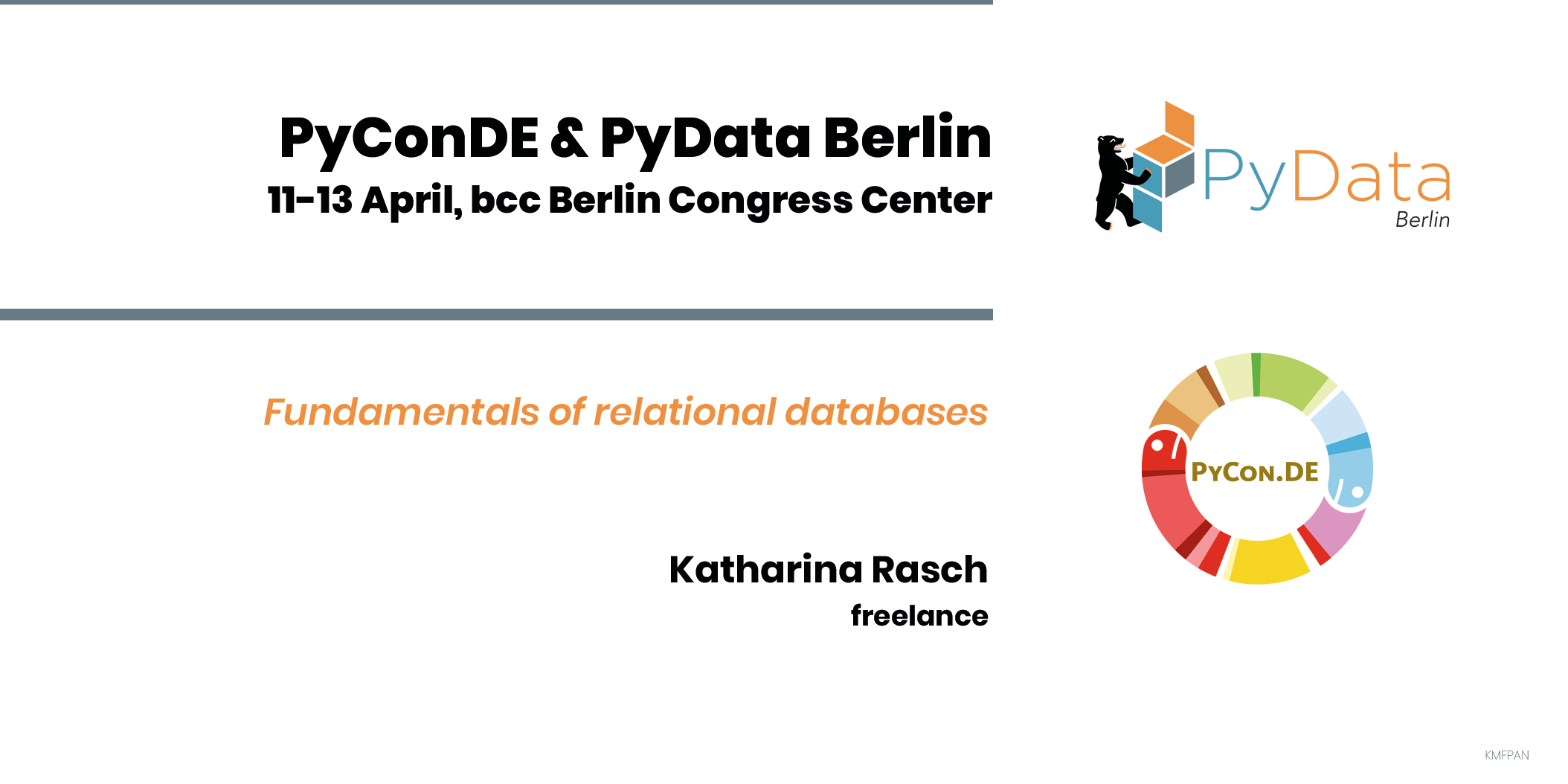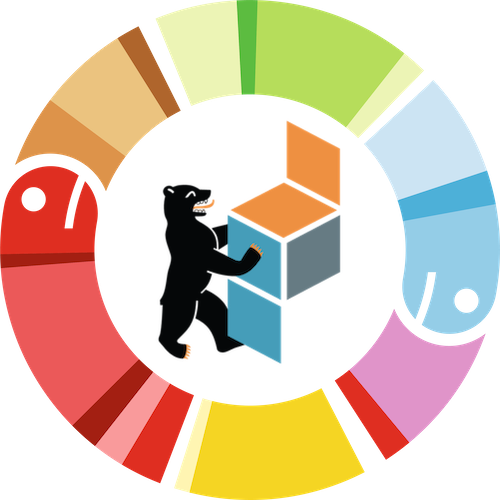Fundamentals of relational databases
Katharina Rasch
OK, so I took this database class back in university AGES ago. And it is one of those that has stuck with me ever since. I feel like many of the concepts I learned in that class still guide me today when I approach data science / software engineering problems, even if my problem doesn’t even have anything to do with databases specifically. That is how strong these concepts are. And that is also why I really want to share them with others.
Some of the things we’ll cover are:
- What is the query planner and what does it do with my query?
- What are indices and how do they help speed up queries?
- What is the ACID principle and why is it fundamental to guaranteeing data validity?
I won’t go deep into things like data normalisation / schema design, because that really should be a talk on its own. But I’ll make sure to highlight the differences between actual relational database systems (like PostgreSQL, MySQL) and data warehouses (like Google BigQuery and Amazon redshift).
Overall, I’ll keep it light and there will be loads of examples to help you follow along!

